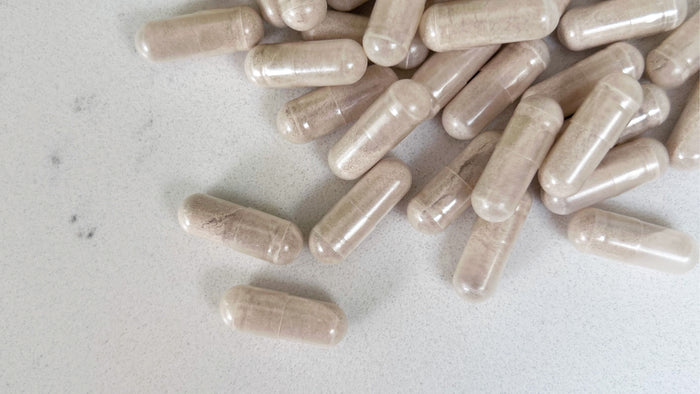Hormones & Nutrition
Our research into the links between hormones and nutrition is at the very core of what drives our work. We conduct systematic reviews of peer-reviewed literature to assess important relationships between hormonal and nutritional health as well as looking for any gaps in research. We also employ the Health & Her databank and publicly available datasets such as the National Health and Nutrition Examination Survey (NHANES) data and the Study of Women’s Health Across a Nation (SWAN).
Current findings in hormones and nutrition
Investigating the Effects of Probiotics during the Menopause Transition: A Systematic Review & Meta-Analysis
This systematic review[i] investigated the effects of probiotics on menopausal symptoms in perimenopausal and recently post-menopausal women. The results showed that probiotics had beneficial effects on typical menopausal symptoms plus on urogenital and bone health. Significantly too, supplementing with probiotics was also found to play a role in improving oestrogen metabolism – enhancing the efficacy and safety of estriol (a synthetic oestrogen found in HRT) and isoflavones (a phytoestrogen or plant-derived compound that mimics oestrogen in the body). A meta-analysis of seven placebo-controlled studies revealed significant improvements in total menopausal symptom scores, vasomotor symptoms, psychological symptoms, vaginal dryness, and vaginal microbiome health after regular use of probiotics. However, the meta-analyses did not show any significant effects on sleep or sexual symptoms associated with the menopause.
These findings suggest that probiotics could be a promising addition when managing symptoms associated with declining oestrogen levels and could enhance the effects of hormonal and phytoestrogen treatments. However, the high risk of bias in many included studies highlights the need for further high-quality trials to confirm these benefits. If future research continues to support these findings, doctors and healthcare practitioners may recommend taking probiotics as a simple menopause management measure.
How Daily Dietary Supplements Could Transform Women's Experience with The Pill (Research Report)
Health & Her collated this research report comprising over 100 studies spanning 50 years to demonstrate the link between depletion of key nutrients (including folate, B vitamins such as B2, B6 and B12, vitamin C and the minerals magnesium, selenium and zinc) when using hormonal contraception. This is a subject which the World Health Organisation (WHO) has acknowledged is of ‘high clinical relevance’ and should ‘receive great attention.’ The report looks closely at the link between these depletions and common side effects of hormonal contraception. We also highlighted the risks to women who stop using their hormonal contraception due to nutrient-induced side-effects. We also looked at the evidence for how something as simple as taking a regular dietary supplement could enhance women’s experiences of hormonal contraception, enabling them to remain on it for longer, experience fewer side effects and generally feel better when using it. To request access to this research, please email us at research@healthandher.com.
References

